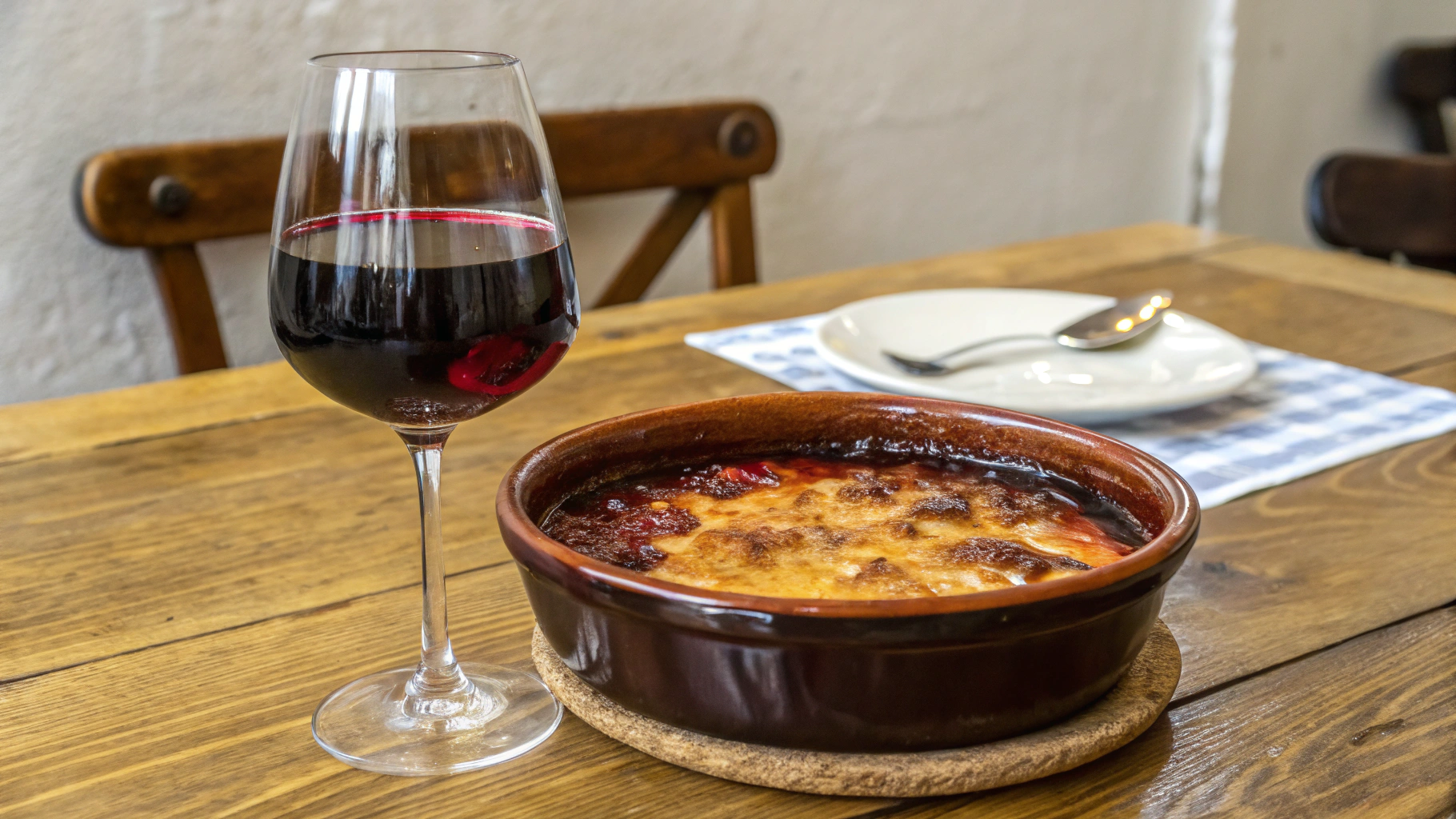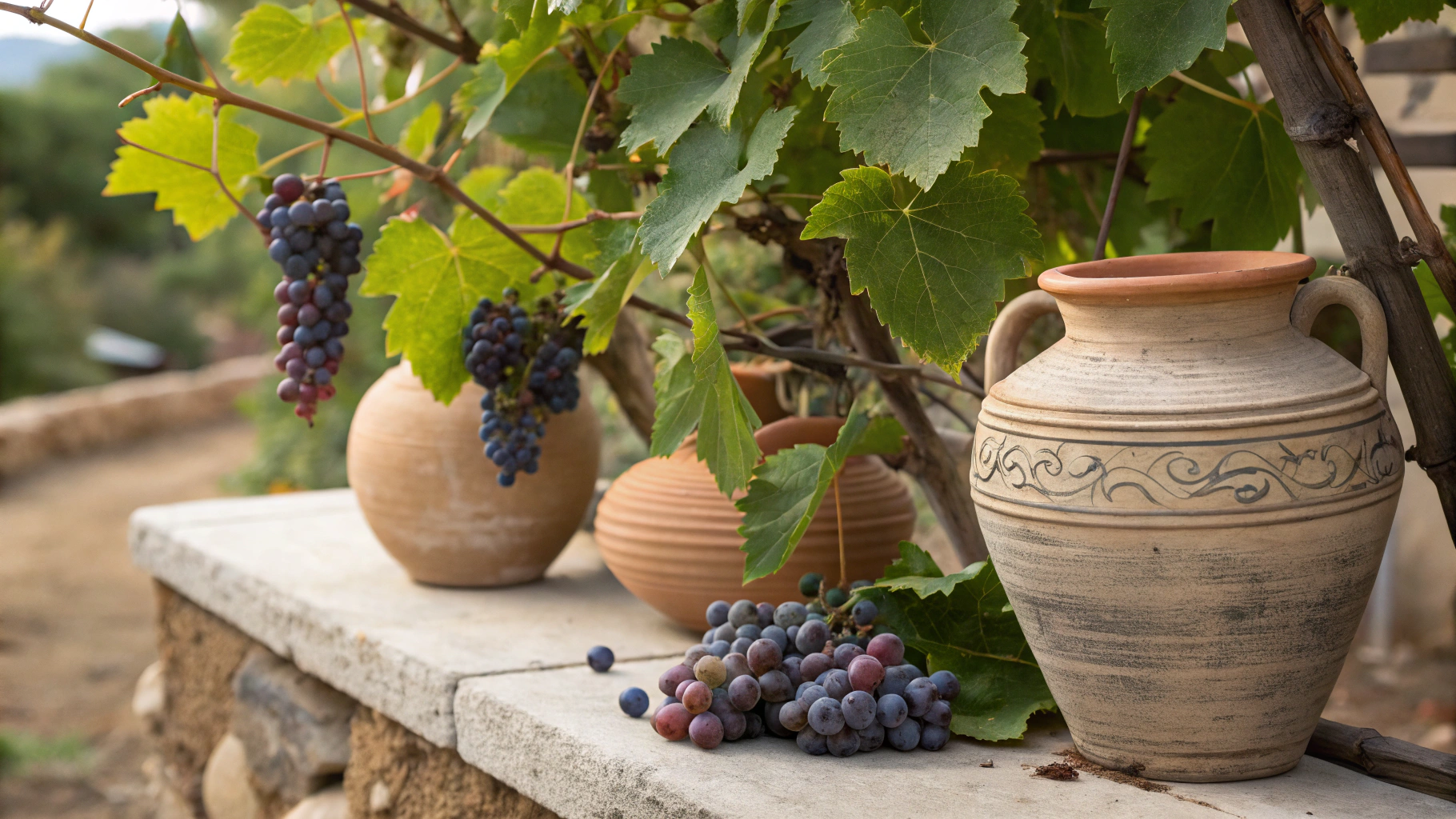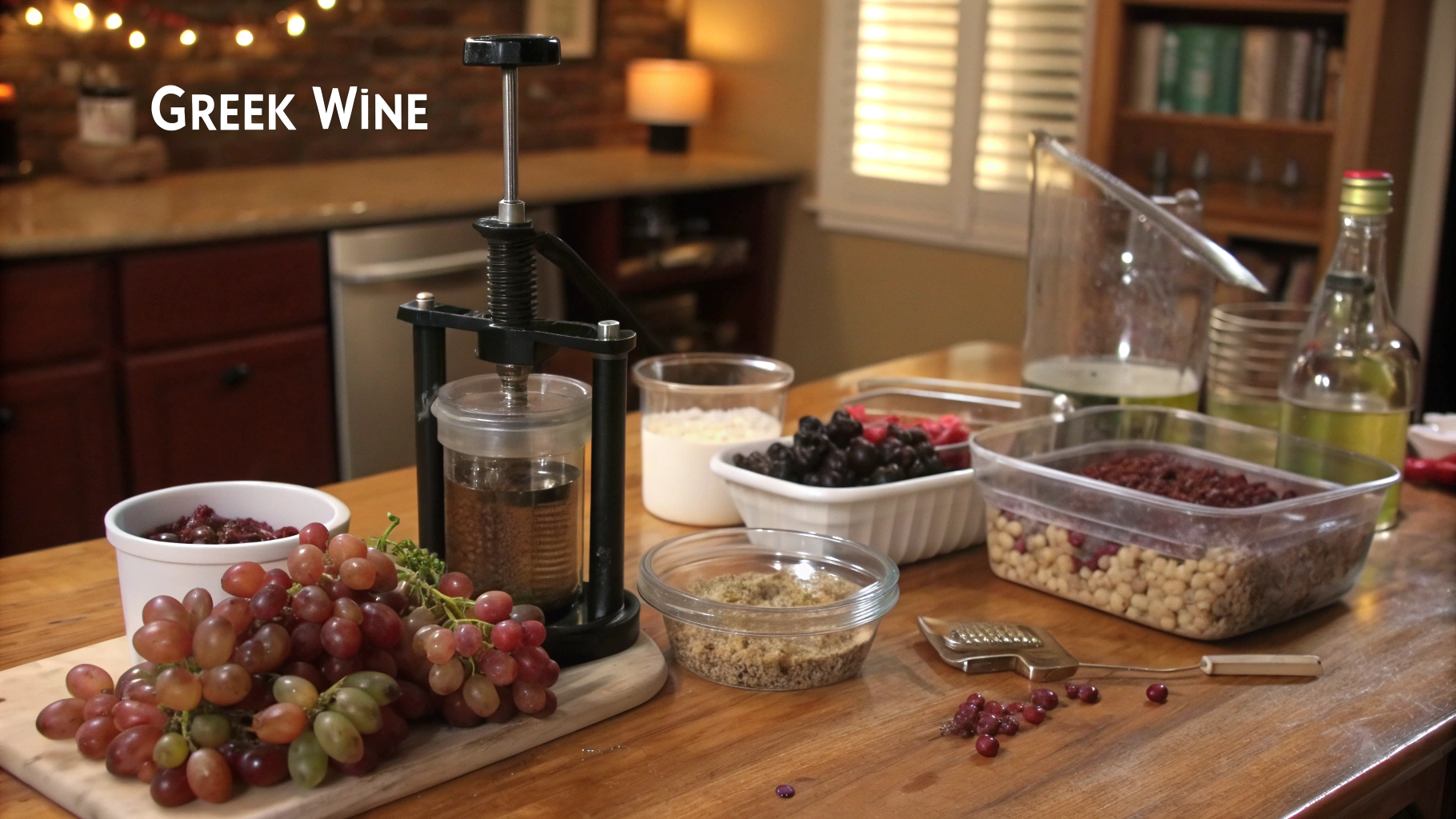Did you know that Greece, with its 6,500-year winemaking history, is producing some of the most exciting wines in the world today, yet represents less than 2% of global wine exports? While many still associate Greek viticulture solely with retsina greek wine, a revolutionary renaissance is occurring across the Hellenic vineyards. Modern Greek winemakers are revitalizing ancient indigenous grape varieties and implementing innovative techniques, catapulting Greek wine onto the international stage with unprecedented critical acclaim. This transformation is reshaping perceptions and offering wine enthusiasts unique flavor profiles unavailable anywhere else in the world.
Ingredients of Greece's Wine Revolution
- Indigenous Grape Varieties: Assyrtiko, Xinomavro, Agiorgitiko, Moschofilero, and over 200 other native varieties
- Diverse Terroirs: Volcanic soils of Santorini, high-altitude vineyards of Naoussa, coastal influences of Crete
- Traditional Methods: Basket-pruned vines on Santorini (dating back 3,500 years)
- Modern Innovation: Temperature-controlled fermentation, precision viticulture
- Investment Capital: Increased funding from both domestic and international investors since 2010
- Educated Winemakers: New generation with international training and local knowledge
- Sustainable Practices: Organic and biodynamic approaches increasingly common
The beauty of Greek wine lies in its versatility – substitute Assyrtiko for Chablis in seafood pairings, or Xinomavro for Nebbiolo with hearty dishes. Each indigenous variety offers distinctive characteristics impossible to replicate elsewhere.
Timing
- Historical Context: 6,500 years of continuous winemaking tradition
- Modern Renaissance: Began in earnest in the 1980s, accelerated after 2000
- International Recognition: Notable increase in awards and critical acclaim since 2010
- Current Market Growth: 32% increase in export value over the past five years
- Future Projection: Estimated 25% growth in high-quality Greek wine production by 2030
This wine revolution has evolved 40% faster than similar quality movements in neighboring wine regions, making Greece one of the most dynamic wine countries today.
Step-by-Step Guide to Greek Wine Appreciation
Step 1: Begin with Assyrtiko from Santorini
Start your journey with Greece's flagship white wine. Grown in volcanic soils and often from ungrafted vines over 100 years old, this wine delivers intense minerality, high acidity, and surprising aging potential. The minerality pairs exceptionally well with grilled fish – much more effectively than many Sauvignon Blancs.
Step 2: Explore Xinomavro from Northern Greece
Often called "Greece's Nebbiolo," this challenging red grape produces wines with firm tannins, bright acidity, and complex flavors of red fruits, herbs, and earth. If you enjoy structured Italian wines with aging potential, you'll find Xinomavro offers comparable complexity at often 30% lower cost.
Step 3: Discover Agiorgitiko from Nemea
This versatile red grape creates everything from fresh, fruity wines to age-worthy, oak-influenced expressions. Its adaptability makes it perfect for those transitioning from familiar international varieties to exploring Greek specialties – particularly if you enjoy Merlot but desire more distinctive character.
Step 4: Sample a Modern Retsina
Forget old-style retsina greek wine and try contemporary versions using high-quality base wines with subtle pine resin influence. These reimagined expressions offer a fascinating glimpse into Greece's winemaking heritage while delivering surprising elegance and food-pairing versatility.
Step 5: Venture into Lesser-Known Regions
Explore emerging areas like Crete, Drama, and the Peloponnese, where winemakers are rediscovering forgotten varieties and creating innovative blends. These regions often deliver exceptional value, with wines offering quality comparable to those costing twice as much from more established areas.
Nutritional Information
- Antioxidant Content: Greek reds like Xinomavro contain 15% higher levels of resveratrol than average European wines
- Lower Sulfites: Many boutique Greek producers use 25-30% fewer sulfites than industrial wines
- Acidity Profile: Varieties like Assyrtiko naturally produce high-acid wines that can enhance digestion
- Moderate Alcohol: Many Greek wines maintain balanced 12.5-13.5% alcohol levels, lower than many modern wines
- Terroir Benefits: Volcanic soil influence contributes to higher mineral content in many Greek wines
Healthier Alternatives
- Low-Intervention Options: Seek natural wines from producers like Tatsis and Sclavos, who use minimal additives
- Lighter Styles: Try Liatiko from Crete or Limniona from Thessaly for lower-alcohol alternatives to bolder reds
- High-Acid Whites: Roditis and Moschofilero offer refreshing options with moderate alcohol levels
- Alcohol-Free Exploration: Traditional Greek grape must preserves (petimezi) provide wine-adjacent flavors without alcohol
- Balanced Consumption: Embrace the Greek approach of enjoying wine with food in moderate quantities
Serving Suggestions
- Temperature Matters: Serve Assyrtiko slightly warmer (50-54°F) than typical whites to showcase its complexity
- Decanting Benefits: Give Xinomavro 1-2 hours in a decanter to soften tannins and reveal its aromatic depth
- Glassware Selection: Use Burgundy-style glasses for aromatic whites like Moschofilero to capture delicate floral notes
- Food Pairings: Match Assyrtiko with grilled octopus, Xinomavro with pastitsio, Agiorgitiko with moussaka
- Progressive Tasting: Arrange flights of Greek wines alongside familiar varieties for illuminating comparisons
Common Mistakes to Avoid
- Overlooking Aging Potential: Many Greek wines benefit from 5-10 years of aging, particularly Xinomavro
- Temperature Extremes: Serving Assyrtiko too cold masks its complexity; serving Xinomavro too warm emphasizes tannins
- Hasty Judgment: Young Xinomavro often needs time to open; don't dismiss it based on first impressions
- Varietal Expectations: Avoid comparing Greek varieties directly to international grapes – appreciate their unique profiles
- Vintage Ignorance: Climate variation causes significant vintage differences; research before purchasing
Storing Tips for Greek Wines
- Aging Candidates: Xinomavro, quality Assyrtiko, and some Agiorgitiko can improve for 10+ years
- Temperature Control: Store between 53-57°F for optimal development, particularly for reds
- Position: Keep bottles horizontal to maintain cork moisture, especially important for age-worthy Xinomavro
- Light Protection: Greek whites are particularly susceptible to light damage; store in dark conditions
- Serving Preparation: Bring older Assyrtiko out 30 minutes before serving; decant aged Xinomavro for 1-2 hours
Conclusion
Greece's wine renaissance represents one of the most exciting developments in the modern wine world, offering unprecedented access to ancient grape varieties reinterpreted through contemporary expertise. By embracing these distinctive wines, you're not only discovering flavors unavailable elsewhere but also supporting the preservation of viticultural biodiversity. The combination of indigenous grapes, diverse terroirs, and innovative winemaking has positioned Greek wine for continued growth on the international stage. Start your exploration today by seeking out a quality Assyrtiko or Xinomavro, and prepare to be surprised by how far Greece's wines have evolved beyond retsina.
FAQs
Q: Are all Greek wines resin-flavored like retsina?
A: No, retsina greek wine is just one traditional style. Most modern Greek wines feature no resin, instead highlighting indigenous grape varieties with distinctive flavor profiles.
Q: Which Greek wine should I try first if I usually drink Sauvignon Blanc?
A: Start with Assyrtiko from Santorini for its crisp acidity and mineral character, or try Moschofilero if you prefer aromatic whites with floral notes.
Q: How do Greek wines compare in price to other European wines?
A: Greek wines typically offer excellent value, with premium examples often priced 25-40% lower than comparable quality wines from more established regions.
Q: Can Greek red wines age well?
A: Absolutely. Xinomavro has proven aging potential comparable to Nebbiolo, with top examples improving for 15-20+ years. Quality Agiorgitiko can also develop beautifully for 5-10 years.
Q: Where can I find quality Greek wines outside of Greece?
A: Specialty wine shops with knowledgeable staff are your best resource. Online retailers specializing in Mediterranean wines also offer good selections, and Greek restaurants increasingly feature quality wine lists.








